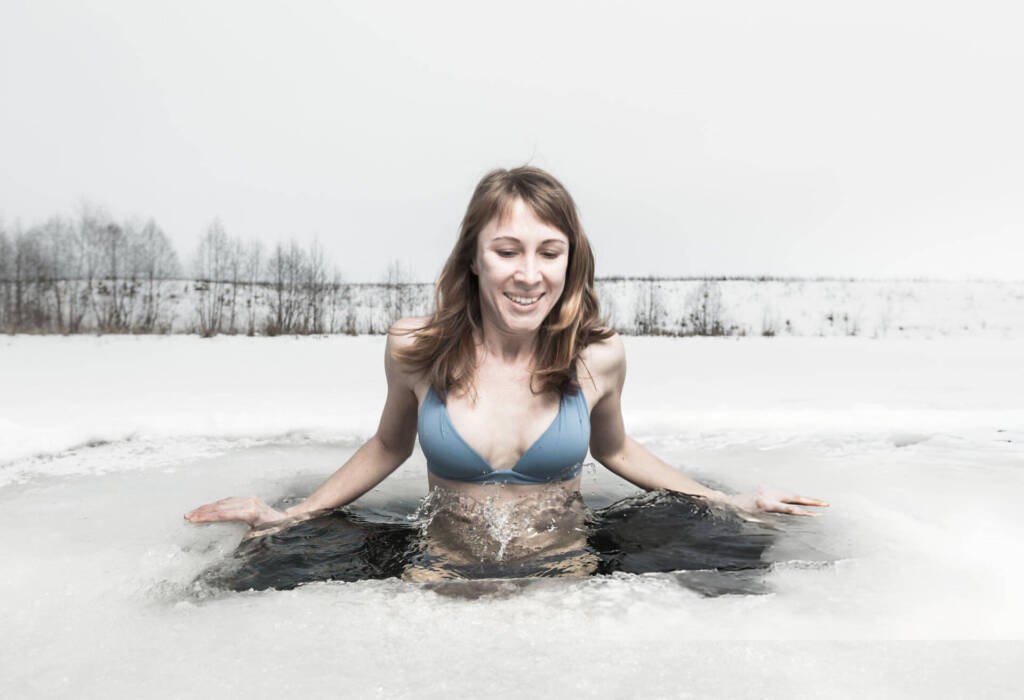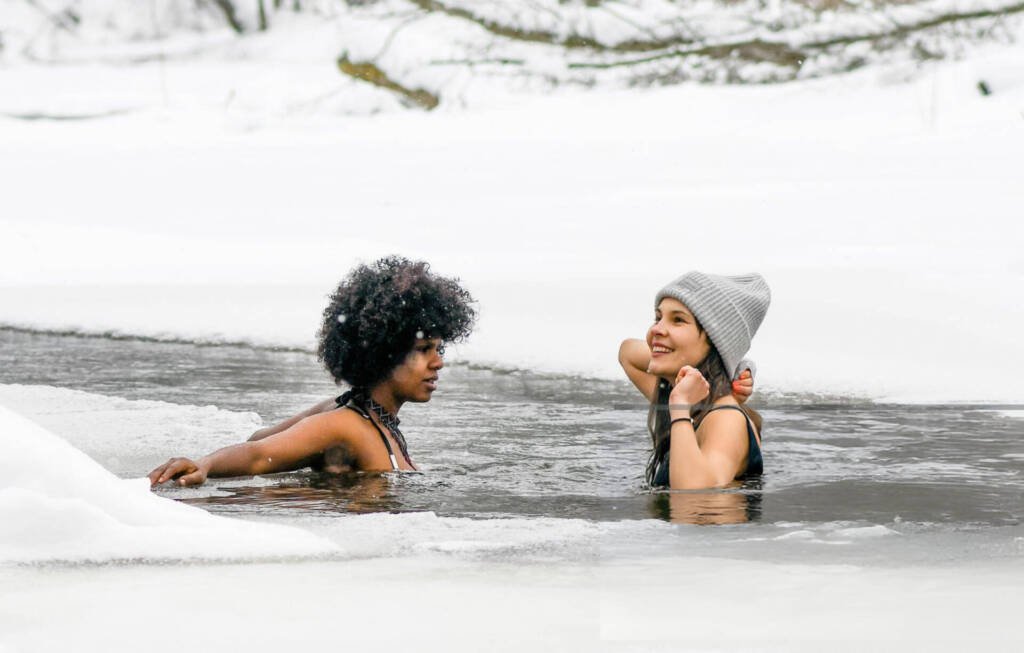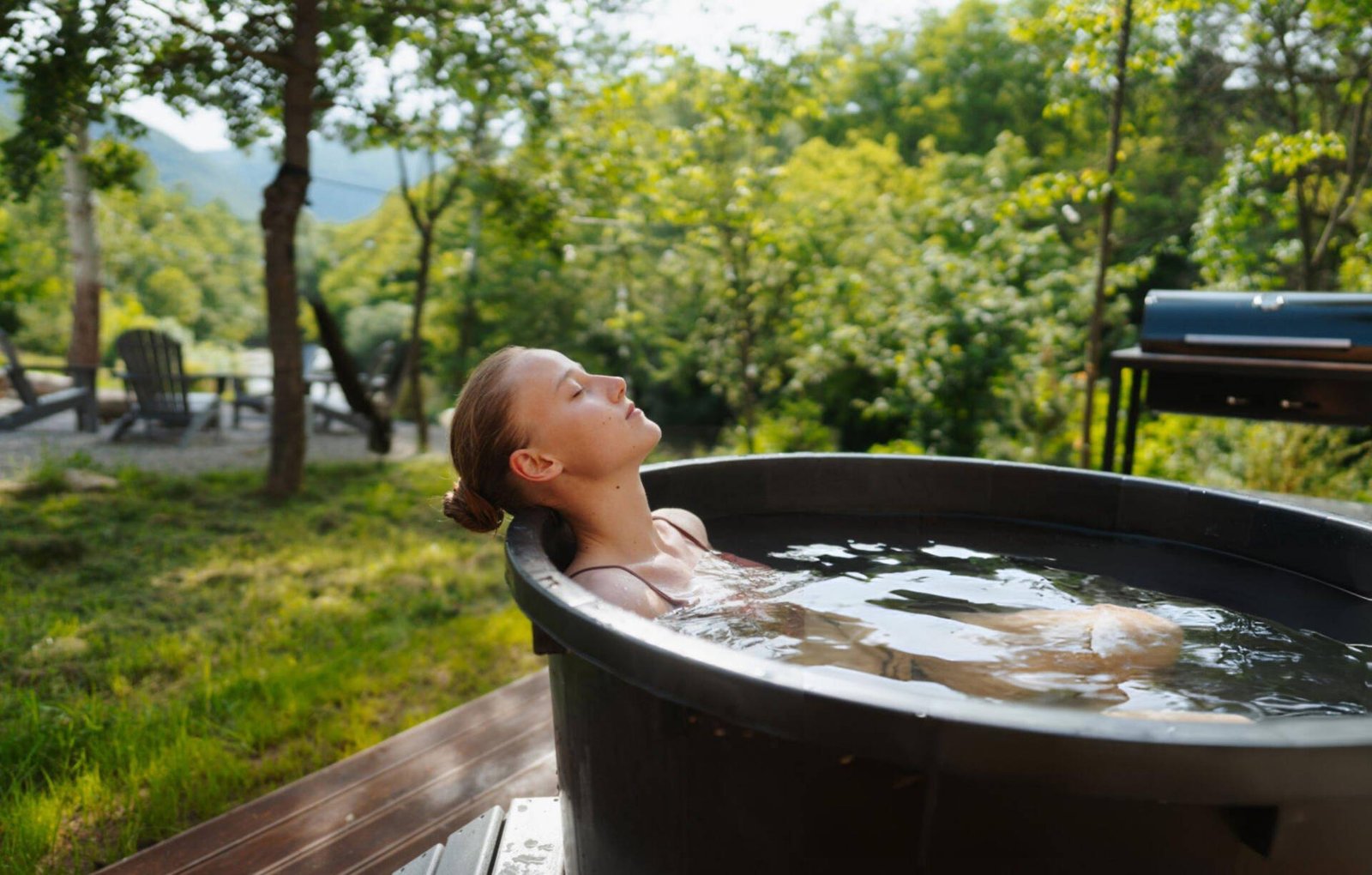Have you ever pondered the ancient practice of immersing oneself in icy cold water for health benefits? This centuries-old tradition, known as cold water therapy, has been a staple in cultures worldwide, particularly in Scandinavian countries like Norway and Sweden. In these regions, cold water therapy is a health practice and a cultural tradition, often associated with mental and physical resilience.
Table of Contents
Cold water therapy, a practice that harnesses the potential benefits of exposing ourselves to freezing temperatures for small periods, holds promise. The potential benefits are numerous and intriguing, whether it’s an invigorating ice bath, a refreshing brisk shower, or a thrilling jump in a cold lake.
Here’s what you need to know about cold water therapy.
What Is Cold Water Therapy?

Cold water therapy involves using water at a temperature significantly lower than the body’s average temperature to treat various ailments. In most cases, the water needs to be less than 15 degrees Celsius (59 degrees Fahrenheit) to make a positive impact. However, many people use water that is much colder than this, often around 5-10 degrees Celsius (41-50 degrees Fahrenheit).
A wide range of health professionals and celebrities encourage cold water therapy. Some studies have shown that it can help reduce eczema flare-ups.
Enthusiasts of cold water therapy firmly believe that immersing oneself in cold water can aid in detoxifying the body, bolstering the immune system, and delivering a host of other positive benefits.
What Are The Benefits of Cold Water Therapy?

It’s important to note that studies on the benefits of cold water therapy are limited. This lack of comprehensive research means we can’t definitively state its effectiveness. Moreover, it’s crucial to understand that this practice may not be suitable for everyone. Therefore, it’s always best to consult with a healthcare professional before starting any new health regimen.
For instance, if you’re pregnant or have a heart condition, cold water therapy probably is not suitable for you.
While the research on cold water therapy is limited, the existing studies suggest various potential benefits. These include reducing muscle soreness, managing depression and anxiety, improving immunity, and even potentially increasing calorie-burning capacity.
- Reducing muscle soreness: Studies, such as a 2015 review published in the Journal of Science and Medicine in Sport, consistently show that athletes who soak their bodies in cold water for a short period after exercise are less likely to experience severe muscle soreness later.
- Scientists believe that cold water reduces pain because it causes the blood vessels in the body to constrict. This reduces blood moving into sore areas, minimizing the risk of inflammation and swelling.
- Temperature management: One of the most apparent benefits of cold water therapy is that it can help you to cool down rapidly if you’re overheated.
- Submerging yourself in a pool of cold water allows you to cool off almost twice as quickly as if you don’t. However, you’ll need to ensure the shock isn’t too much for your body to bear.
- Managing depression: While cold water isn’t a cure for mental health conditions, it could help to alleviate specific symptoms of anxiety and depression.
- One study found that a regimen of short cold showers led to fewer depressive symptoms in patients. While this solution might not work for everyone, it could be a way to get some of the symptoms of depression under control.
- Improved immunity: Some believe cold water immersion can help the body’s immune system. In one study published in the journal PLOS ONE, researchers examined whether people could influence their own immune response with cold water immersion. The report found that using cold water therapy caused participants to produce anti-inflammatory agents and other helpful substances in their bodies when exposed to an infection.
Some influencers and health specialists also believe cold water immersion can improve your calorie-burning capacity. While more research is needed to verify these claims, some studies have been positive.
For instance, researchers found that Korean women who dive for seafood are more likely to have a higher basal metabolic rate during the winter diving months when the water is colder.
Should You Try Cold Water Therapy?

If you’re considering cold water therapy, it’s crucial to approach it with care and responsibility. Start with showers to help your body adapt, gradually decreasing the temperature. Alternatively, you can also opt for a cold shower if you need to cool off after a workout. Remember, your health and safety should always come first.
It is worth having a friend around if you’re immersing yourself in an ice bath or jumping in icy cold water outdoors.
The sudden shock to your system when jumping into cold water could cause you to panic, making it harder to swim. You’ll also need to warm up quickly when you get out of cold water.
Wrapping yourself in warm towels after you get out of cold water will prevent your body temperature from continuing to drop.






1 Comment
Steve Beer
This was a fantastic read, Suneil! I love it!